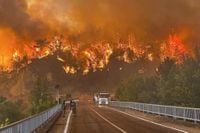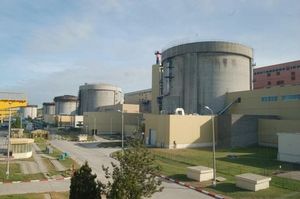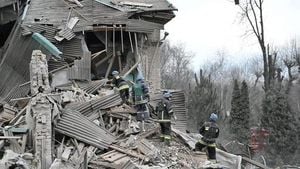On July 24, 2025, a devastating series of wildfires swept across Cyprus and Turkey, leaving a trail of destruction and loss of life amid a relentless heatwave that has gripped the eastern Mediterranean. The fires, described as the worst Cyprus has seen in over half a century, claimed two lives on the island, while Turkey mourned the loss of ten firefighters killed in the line of duty just the day before. Together, these tragedies have pushed the death toll from wildfires in the region to 12, underscoring the escalating threat of extreme weather events fueled by climate change.
The blaze in Cyprus erupted on July 23 near Limassol, rapidly spreading through mountain villages north of the city, fanned by gale-force winds and searing temperatures approaching 44 degrees Celsius (111 Fahrenheit). By midday the following day, the infernos had consumed over 40 square miles of territory, devastating prime agricultural land and destroying dozens of homes. The charred remains of two victims were discovered inside a burnt-out vehicle, a grim testament to the ferocity of the flames.
Authorities deployed around 250 firefighters to battle the multiple fronts of the fire, but the scale of the disaster overwhelmed local resources. The government expressed deep sorrow over the loss of life, with spokesperson Konstantinos Letymbiotis describing the situation as unprecedented. International assistance was swiftly mobilized: Greece, Egypt, Israel, and the United Kingdom, which maintains an RAF base on Cyprus, pledged to provide air support and additional firefighting personnel, while the European Union sent water-bombing planes to aid containment efforts.
Charalambos Theopemptou, a Green Party member and chair of the Cypriot parliament’s environmental committee, painted a bleak picture of the destruction: “We haven’t seen such devastating fires since the Turkish invasion in 1974. It’s tragic, people have died, 72 houses and 91 cars have been burned, it’s absolute chaos.” He lamented the lack of preventive measures that could have mitigated the disaster, pointing to an unimplemented EU directive from 2022 that mandated public warning systems and better fire prevention infrastructure.
“Illegal waste dumps haven’t been cleared, inflammable vegetation hasn’t been removed, basic infrastructure like big cement water tanks and hose pipe points aren’t in place, all of which has helped the fires spread,” Theopemptou explained. The combination of extreme heat, prolonged drought, and strong winds created a perfect storm for the fires to ignite and rapidly escalate.
Meanwhile, Turkey faced its own wildfire crisis. At least six separate fires raged across the country on July 24, with the western province of Eskişehir bearing the brunt. On July 23, ten firefighters and rescue volunteers lost their lives battling flames in this region, with 14 others injured. The victims were tragically caught when the fire’s direction suddenly shifted, leaving them surrounded and “burned alive,” according to a local member of parliament.
Funerals for the fallen firefighters were held on July 24, with five members of the AKUT rescue organization buried at Ankara’s Ahmet Hamdi Akseki Mosque, while five forestry workers were laid to rest in their hometowns across western Turkey. The loss has deeply affected communities and officials alike, highlighting the dangers faced by those on the frontlines of wildfire containment. Forestry Minister İbrahim Yumakli confirmed the deaths and noted that Turkey had been battling wildfires since June 26, with conditions exacerbated by strong winds and temperatures soaring 6 to 12 degrees Celsius above seasonal averages.
Personal stories have emerged amidst the tragedy, adding a human dimension to the catastrophe. One forestry worker who died was only 28 years old and had returned to work just two days after his honeymoon. An AKUT volunteer who perished had previously spent a month rescuing victims of the devastating 2023 earthquake in southern Turkey, underscoring the commitment and sacrifice of these individuals.
In the northwestern province of Bilecik, fires had been raging for four consecutive days by July 24. Local residents described the challenges firefighters faced, citing poor road access, thick forests, and rocky terrain that hindered intervention efforts. “They couldn’t intervene. There is no decent road, forests are thick and it’s rocky,” said Cemil Karadag, a local resident. Despite the encircling flames, Karadag expressed relief that the center of his village escaped severe damage.
Additional wildfires erupted in other Turkish provinces, including Sakarya in the Black Sea region, where a key motorway was closed and several villages evacuated. Fires also threatened Karabuk, home to the UNESCO World Heritage city of Safranbolu, and Manisa in western Turkey. Earlier in July, a wildfire near the town of Odemis in Izmir province claimed the lives of an older man and two forestry workers, further contributing to the year's grim toll.
Scientists have long warned that the burning of fossil fuels is intensifying extreme weather events like heatwaves, which in turn increase the frequency and severity of wildfires worldwide. This summer’s brutal heatwave, which began around July 20, has pushed temperatures in southern Europe to record highs, creating tinderbox conditions across Cyprus and Turkey.
The scale and intensity of these fires, along with the tragic loss of life, reveal not only the immediate dangers posed by climate change but also the urgent need for improved preparedness and response strategies. As Charalambos Theopemptou noted, preventive infrastructure and public warning systems are critical to mitigating such disasters. The international community’s rapid response to Cyprus’s appeals for aid demonstrates solidarity but also highlights the growing challenge nations face in combating climate-induced emergencies.
As temperatures continue to climb and drought conditions persist, Cyprus and Turkey—along with many other regions—must confront the stark reality that wildfires will remain a formidable threat. The recent tragedies serve as a somber reminder of the human cost of these disasters and the pressing need to address the underlying environmental factors driving them.




